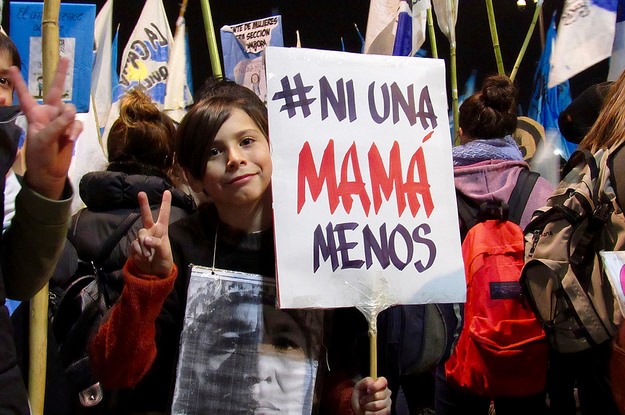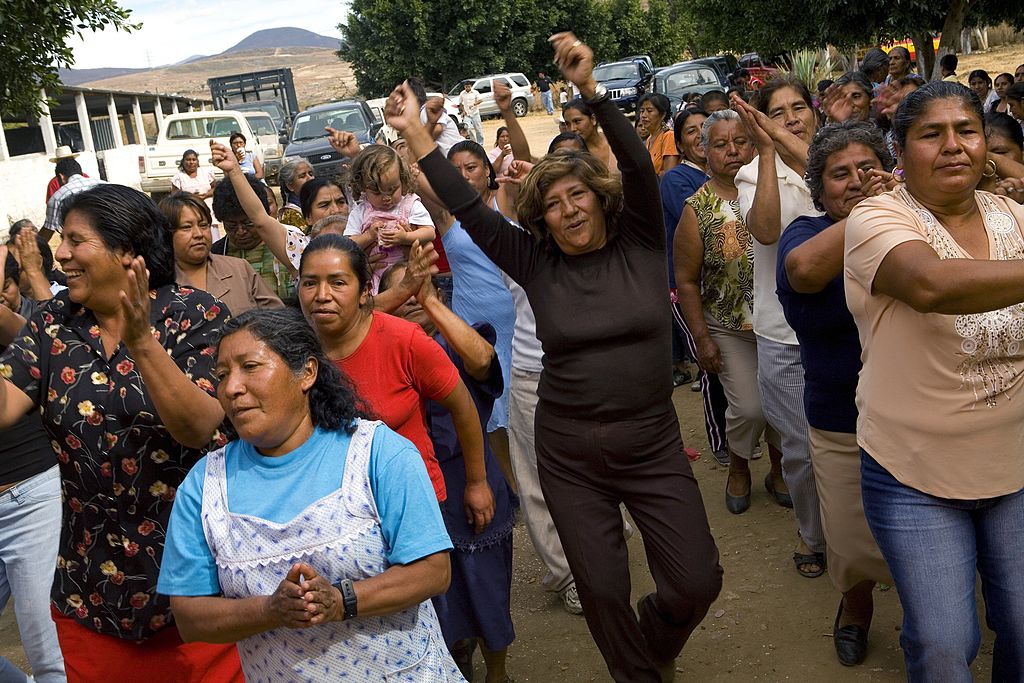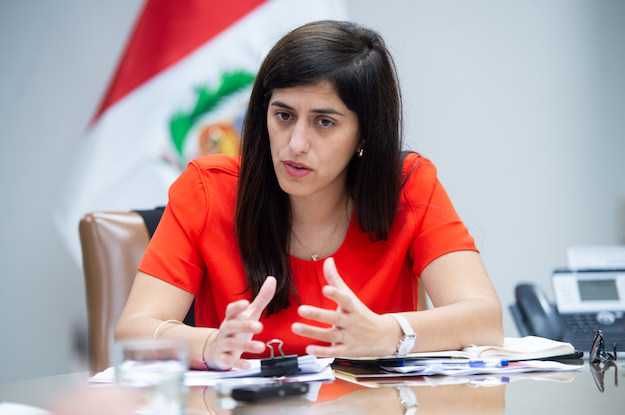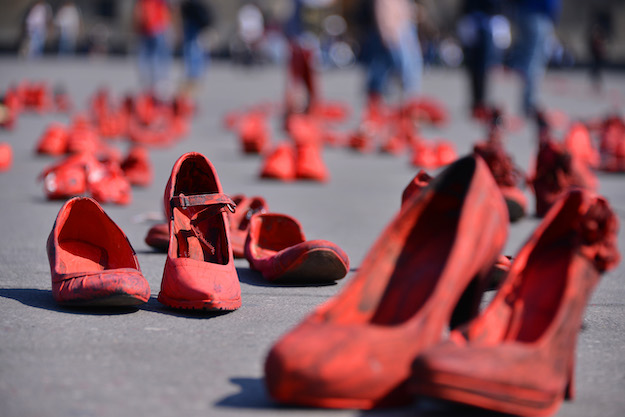(Updated on October 20)
On October 19, tens of thousands of women across Argentina – and others across the hemisphere – protested a rash of violence against women. The particularly chilling murder of a 16-year-old girl has inspired women’s rights movement Ni Una Menos (Not One Less) to call for a day of mourning dubbed “Black Wednesday,” to demand action to end femicide – the killing of women because they are women. Since the birth of the group in Argentina last year, protests inspired by the movement have sprung up in places like Peru, Spain and Uruguay. AQ spoke with one of the group’s organizers about what they hope to accomplish, and the upcoming launch of their First National Index of Machista Violence.
AQ: What sparked the protests that will take place today, and why are you calling it #MiércolesNegro (Black Wednesday)?
Ingrid Beck: The women’s movement protesting under the slogan Ni Una Menos (Not One Less) in Argentina has been around for quite a while, and has previously held two major demonstrations demanding an end to femicide in Argentina. Today’s protest came about spontaneously as a reaction to a series of femicides, but also to one in particular: that of Lucía Pérez, 16, who appears to have been assassinated by three men. She was tortured and raped, horrible suffering for an adolescent girl. We’re calling it Black Wednesday because we’re in mourning for all of the dead women, all of the women killed simply for being women.
AQ: Have you seen any progress since Ni Una Menos started as a movement last year?
Beck: Truthfully, no. No, no, I don’t see progress. (Well) I see progress in society, which evidently every day tolerates fewer of these situations and tolerates much less machista violence in general. Socially, yes I do think we’re starting to see some changes, but with regard to measures that the state has to take, I don’t see advances.
AQ: If the government isn’t doing what it needs to in order to resolve the problem, is Ni Una Menos changing its approach?
Beck: We never had an approach with any government. The demand was always to the public authorities, not just to the executive branch, but also to justice, deputies and senators, because they’re all responsible for public policy. We had hoped that with the change of government this year – we thought that maybe they would be sensitive to the mobilizations. And that with a woman at the head of the National Council of Women, which is the entity in charge of designing public policy for women and women’s rights, that there would be advances on this. But for now we’re not seeing anything.
AQ: What are your plans for next year?
Beck: This is a movement driven by spontaneous and diverse impulses and therefore it’s very difficult to think about making plans. Our collective is currently working on a national survey about machista violence that we will be presenting on November 25, the International Day for the Elimination of Violence against Women. We made the survey online and almost 60,000 women have filled it out. This will allow us to have a representative sample of what’s going on with machista violence in Argentina.
AQ: What do you hope to achieve with this index?
Beck: On the one hand, to us it seems like it will be a very valuable tool for women, to attach greater stigma to some violent situations. Before femicide come other forms of violence, from physical and sexual violence to violence that has to do with street harassment or harassment in private spaces, situations of men having power over women … this survey helps women to describe that. Men will also be able to see what’s going on, because some men don’t know, because it doesn’t happen to them. And then I also hope that the survey results are taken into account for public policies.
AQ: Does the collective see itself expanding to take on related issues, like for example gender equality?
Beck: Yes. But actually, all of these issues are related in some way to machista violence or machismo, right? For example, the legislature is about to vote tomorrow on the gender parity law. It’s not a coincidence that all of this is appearing right now. Inequality is machismo, it is violence. Women’s rights in all senses interest me. But the thing is, the issue of women dying for being women, by femicide, this is more urgent. They’re dying. The rest, while it shouldn’t have to wait, it doesn’t come up as much.
AQ: We are now seeing Ni Una Menos in Peru, Spain. What are your thoughts on this expansion?
Beck: It shows that this is a global problem. It makes me feel, in a way, that I am not alone. And well if you look at what’s happening in the U.S., what (Donald) Trump is saying, to me it speaks to the fact that the problem isn’t just of the countries of Latin America. Machismo is absolutely a global problem. But these demonstrations also show that women are becoming more empowered in all parts of the world.
—
Bons is an editor for AQ.
The transcript of this conversation, which took place on October 18, 2016, has been lightly edited for clarity and length.








